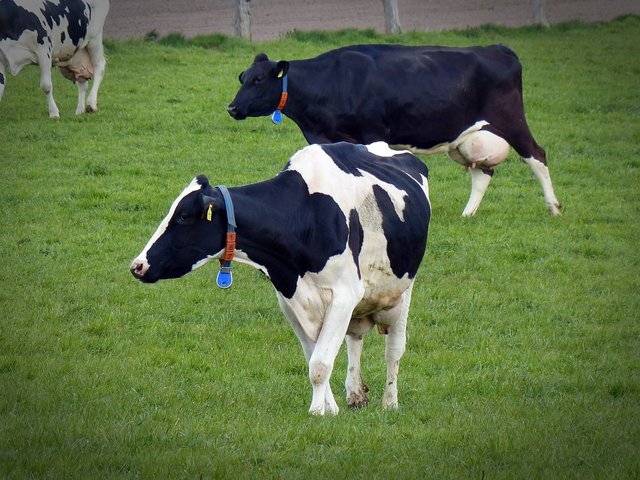Does it matter if your protein shake is organic or from grass fed cows?

Take away points
- Organic/Grass-fed proteins are way over priced
- The hydrolysation or isolation process to get the protein powder actually takes away any benefit of the protein being from an organic or grass fed source.
- Don’t believe the marketing
- Save your money and just use a high-quality protein
- If you choose to buy organic read the fine print to make sure it doesn’t state “ingredients organically sources where possible”
I have been asked about this a lot over the last few weeks and I have also noticed the outrageous prices for organic supplements, especially proteins. Most proteins on the market are fairly cheap to buy (excluding hydrolysed whey proteins) at a raw wholesale level including one’s labelled organic or grass fed. So why are they so expensive on the shelves? By putting labelling a product saying organic or grass fed instantly jacks the price up and people assume it’s higher quality and better for you.
People choose organic foods for a variety of reasons, some evidence based but mostly by assumption or because they read the pseudo-science based article written on Facebook.
If you are reading this I don’t think I need to tell you that you shouldn’t believe everything you read on Facebook!There is evidence to suggest that organic grass fed cows produce more omega 3 anti-inflammatory fatty acids and less inflammatory omega 6 (the same has also been found in organic wild salmon). So, does this mean the protein produced from the cow’s milk is higher in omega 3’s or better for you?
When you look at protein powders and supplements whether they are organic or from grass fed cows or not it makes no defence to the end product because of the process the milk goes through to produce the whey protein powder. All the fat, vitamin E and other nutrients are processed out leaving just the proteins.
But what about pesticides you ask? Much the same. If there is any chemical pesticide that has made its way through the grains or grass that the cow has consumed all the way into the milk it would then be destroyed or separated as the milk goes through the isolate process. (in the case of my protein a hydrolyzing process to become a protein powder). This is the same for vegetable proteins as well such as pea protein isolate.
One of the worst price markups is organic vegetable proteins like pea protein isolate. Supplement companies can buy this for as low as $4 a kilogramme! I just saw a product being sold for $55 a kilogramme in a store in Melbourne just because its organic!. And this pea protein is terrible for recovery (very low leucine content!)
If you do still choose to buy organic proteins make sure you read the fine print on the label as you may not be getting what you think. Many of them will state “ingredients organically sources where possible”. This basically means they can use as little or as much organic ingredients as the like.
I wouldn’t waste money on organic and/or grass-fed whey proteins or even organic vegetable proteins as it is all just a marketing ploy making you think that you are getting a better product for your money when there is really no difference.
If you have any supplement questions feel free to message me or leave a comment below.
MrSportScienceBAppSc (Ex&SpS) MSc High Performance Science
Director
www.swifthighperformance.com.au
id say short term no. long term yes
how in the long term yes?
Wow, very interesting article. I wouldn't even think that all GMO's would be removed in the process of making the whey protein. I always wondered what made organic proteins actually organic , or "better for you", that I see being sold at outrageously inflated prices compared to the normal generic proteins that I would get from say, the grocery store. I've contemplated purchasing these organics, but thanks to you, screw that!! Thank you!
@ndre1224 no problem at all. Glad your liked the post. Have a great weekend.
It might matter depending on the Vitamin K2 content.
The process that the proteins are put through to become the powdered end product will separate/destroy almost vitamins and miners and even if they survived the process it would be so negligible it would have no effect on the quality or the product or the benefit of consuming it.
OK I hadn't considered that!
So I've been buying this: https://professionalwhey.com.au/product/select-nz-whey-protein-concentrate/
but are you saying this would be just as good: https://professionalwhey.com.au/product/aus-whey-protein-concentrate ?
Yes just as good however I am not a fan of whey protein concentrate as many people have digestive issues from it and if using it for recovery from training it is not as good as a hydrolysed protein. If you are using it in smoothies and a meal replacement this it will do the job.
That's interesting because my nutritionist friend suggested concentrate would be easier to digest, I guess because it's not as processed?
The process of turning milk into concentrate leave people with more digestive distress than further hydrolysing the proteins. (People have issues with the isolate as well.). The further down the process the easier to digest as the product is broken down in to the more basic amino acid peptide form and thing like lactose are completely removed. This is one of the reasons why I only will give my athletes a hydrolysed protein.
Cool, thanks for the advice. I'll give the isolate a try next time to compare. And as you mentioned, it would be good to have on hand for post-workout.
If using for post workout try they hydrolysed version with added leucine amino acid. Thats the gold standard.
Will do, thank you